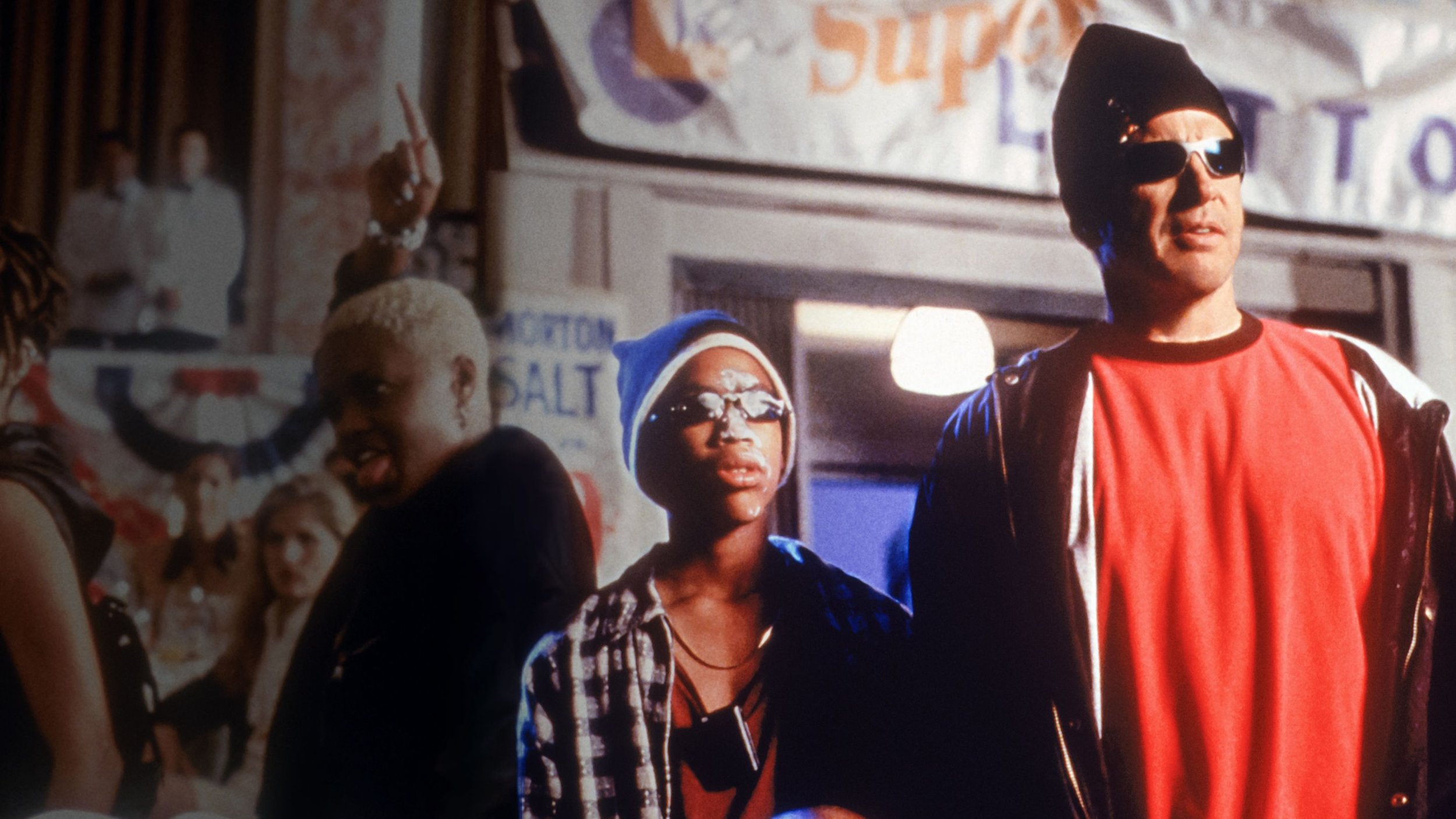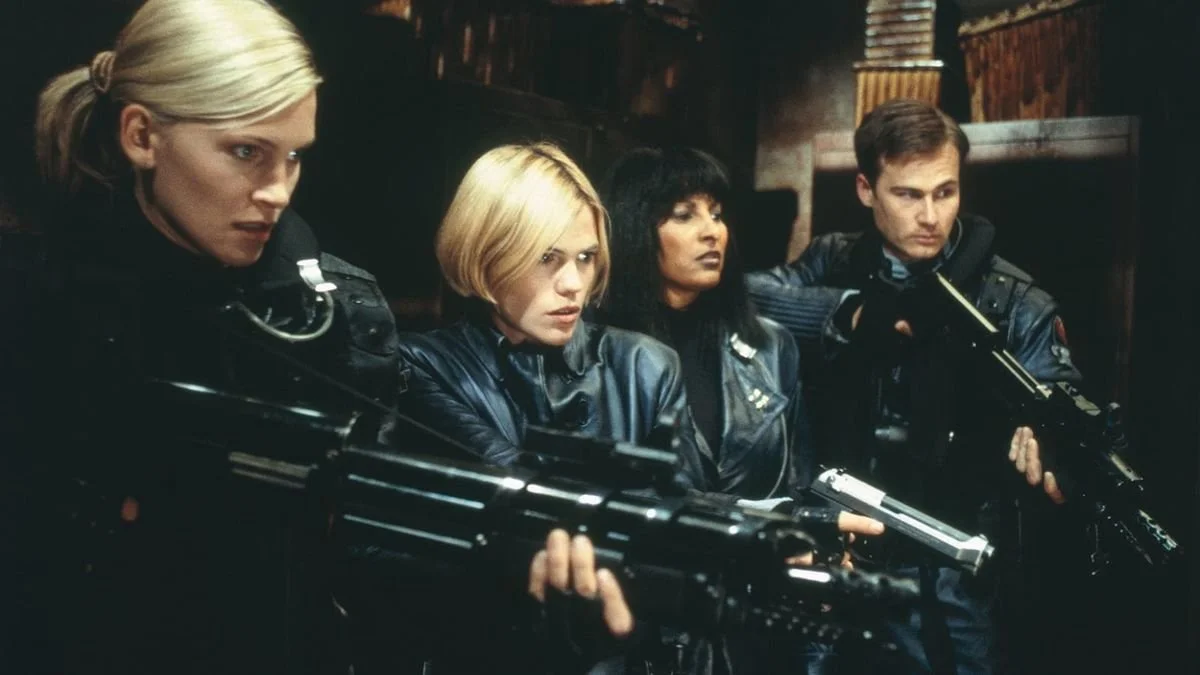Review: Bulworth (1998)
What is one to make of a movie like Bulworth, which imagines a scenario where a politician goes off script, tells it like it is, and becomes wildly, unexpectedly popular, when we’ve actually had a version of Bulworth as US President for four years? Sure, the details don’t exactly line up. In Warren Beatty’s 1998 political satire, Jay Bulworth is a Democrat while Donald Trump ran as a Republican. Bulworth is committed to undermining his corporate backers to the point of risking personal harm while Trump was an outsider in name only, hardly draining the swamp but simply replacing the pond scum with his own variety. And yet the comparisons are clearly there: a political candidate becomes shockingly, enormously popular by breaking every rule in the political playbook. Beatty’s film was a commercial failure upon its release, but has grown into a beloved cult film over the years. Comparing Bulworth to Trump makes the film even more fascinating. It’s an outrageous satire about the dysfunctions of American politics that, over time, looks ever more perceptive, albeit cynical, about the state of politics.
The film’s hook is enormously appealing. Having grown disenchanted with the sad state of politics and his current primary campaign, Democratic Senator Jay Billington Bulworth (Beatty) puts out a hit on himself so his daughter can make $10 million off his life insurance policy. Since he knows he’s going to die in two days, he starts breaking all the rules of decorum and political propriety: he gets drunk at a campaign event, makes fun of his donors, and talks about how the Democratic and Republican parties are both beholden to the same corporate interests and thus are two sides of the same coin. He parties with hoods, smokes pot, starts rapping, and openly courts Nina (Halle Berry), the beautiful young activist who protests one of his campaign stops.
The absurdist twist of Bulworth is that the senator’s actions don’t tank his campaign, but rather, boost his popularity into the stratosphere. He suddenly becomes the hottest thing on prime time television and the popularity encourages him to act out even more flagrantly. This leads to a live television interview where he drops F-bombs, swigs from a flask, and freestyle raps about the insurance companies destroying the American healthcare system and the Democratic Party’s absolute indifference to Black povery and the American lower class. It’s a ridiculous sequence, amplified by Warren Beatty decked out in baggy basketball shorts, a red t-shirt with a chain, sunglasses, and a beanie. His raps are more like nursery rhymes than legit freestyles, but that’s the point. They’re outrageous and awkward and completely unfiltered. It’s hilarious and more than a little cringeworthy.
If you’re familiar with American comedies from the 1940s, you’ll recognize the influence of Preston Sturges in Beatty’s absurdist approach to satire. Like a Sturges film, Bulworth skewers the American political process while also undermining the nation’s core self-conceptions. In terms of plot, it most closely resembles Sturges’ The Great McGinty (1940), a political satire about a homeless street tough who becomes governor, but the cynicism of Beatty’s film is as much influenced by Hail the Conquering Hero (1944), which follows a soldier’s homecoming in small town America and is Sturges’ most ruthless film about American political mythmaking.
Like in a Sturges film, the outrageous progression of the narrative in Bulworth underlines the satirical message, making the point that the American system really is this dysfunctional. The added dimension here is the film’s focus on African American culture, which is laudable, but easily its weakest link. On the one hand, it allows for some of the goofiest, most transgressive humour in the film. For instance, watching Warren Beatty dropping rhymes decked out like a gangbanger, and, yes, even peppering in the occasional n-word with a soft r, is outrageously funny. It couldn’t be done today, but therein lies some of its transgressive impact.
On the other hand, while Beatty clearly wants to give voice to Black class interests, he treats the various Black characters as little more than racial stereotypes. Of course, this is satire, so everyone in the film is something of a caricature, but caricatures are best when they amplify the inherent truths of cultural perception, not shrink them. For instance, Bulworth’s chief of staff, Dennis Murphy (Oliver Platt), is a coke-snorting, double-talking, smooth maneuvering weasel who is simply an exaggeration of elements present in every American politician’s chief of staff. He’s a heightened version of a familiar type, while Halle Berry’s Nina or Don Cheadle’s gangster, L.D., aren’t so much heightened comic portraits, but rather more of the same stereotypical Black folks present in mainstream American pictures. There’s no doubting the comic result of Beatty’s approach, but you do question whether he focused on Black culture so as to allow himself to say outrageous things with some extra moral weight, thereby acting a bit too much like the Democrats he’s satirizing in the film.
Still, Bulworth remains audacious and funny and more than a little dangerous. The film is made even more outrageous by Trump’s victory in 2016. Trump’s entire campaign is proof that the Bulworth approach can work in America, even if it’s all a cynical gambit, and not a genuine deconstruction of political chicanery, as it is here. Thus, Bulworth’s hyper cynical ending is even more telling, and true in light of Trump’s victory. Perhaps the darkest realization comes with understanding that America allows for a Trump, but not a real Bulworth, that decorum and good manners and political-doublespeak can be thrown to the wind, but only if they’re in service to empty promises. Both the movie and real life have shown that power tolerates a jester, so long as he never truly threatens the king.
8 out of 10
Bulworth (1998, USA)
Directed by Warren Beatty; written by Warren Beatty and Jeremy Pikser, based on a story by Beatty; starring Warren Beatty, Halle Berry, Don Cheadle, Oliver Platt, Paul Sorvino, Jack Warden, Isaiah Washington.



Kiyoshi Kurosawa’s 2001 J-horror film predicted the new millennium in terrifying ways.